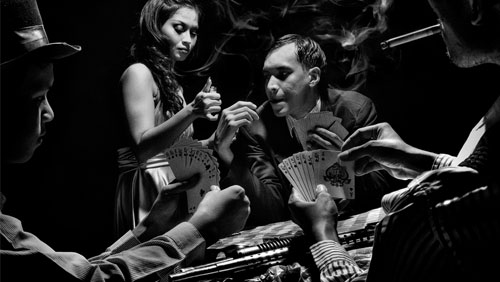 New research claims to have exposed how illegal gambling is used to fund large criminal syndicates involved in racketeering, money laundering, extortion and fraud.
New research claims to have exposed how illegal gambling is used to fund large criminal syndicates involved in racketeering, money laundering, extortion and fraud.
During a roundtable discussion at Global Gaming Expo (G2E) in Las Vegas, the American Gaming Association released a report by Virginia Commonwealth University’s Dr. Jay Albanese that details the significance of illegal gambling operations to organized crime organizations in the U.S.
The research shows that in 2014, there were more than 80 people in 23 states charged and convicted for participating in illegal gambling businesses (ILGB). The convictions were centered on 40 organization, 15 of which were online and offshore betting (primarily sports-betting enterprises that operate using websites). These companies were mostly based in Costa Rica to dodge U.S. gambling laws and were found to have worked from 10 U.S. states.
One example case used by Albanese was the Gambino family-related sports betting operation that utilized the Costa Rica-based 44wager.com site to process bets. The operators collected losses and distributed winnings locally, and payments were sent via Western Union. Fees were also collected from individuals for running an independent sports gambling operations and a card club in territory controlled by the Gambino crime family of the Cosa Nostra.
One quarter of ILGB convictions came from illegal gambling parlors and games played in-person at establishments that included primarily illegal casinos, private clubs, and illegal slot machines in bars or stores of various kinds. Five ILGB that involved animal fighting were also discovered in five different states.
Beyond operating an ILGB, associated charges often involve money laundering, racketeering (indicating an ongoing criminal enterprise), conspiracy, and extortion, especially in cases involving larger criminal groups, which face more serious offenses such as homicide and drug trafficking.
These ongoing criminal groups included the Armenian Power Gang, Outlaws Motorcycle Club, several families of the New York Cosa Nostra, a New York Chinatown gang, Russian-American organized crime group, the Philadelphia Cosa Nostra group, and a Texas methamphetamine trafficking business.
In 2014, 85 individuals were convicted for a variety of crimes committed by members of the Armenian Power Gang, which set up high-rolling illegal gambling tournaments in California. The charges included racketeering, bank fraud, identity theft, debit card skimming, counterfeiting, and money laundering. Some defendants were charged with extortion, drug trafficking, and operating an illegal gambling business.
The Taiwanchik-Trincher Organization, which operated illegal sports betting business for high rollers in Russia and illegal poker rooms in New York, reportedly laundered $100m of gambling proceeds over six years through shell companies in Cyprus and into the U.S. As of 2014, 28 members had pled guilty, forfeiting more than $68m.
AGA said that it is working with the law enforcement through its campaign “Stop Illegal Gambling – Play it Safe” to identify the regulated gaming industry from illegal gambling businesses.
Earlier this year, the AGA assembled an Illegal Gambling Advisory Board in an effort to develop tools for law enforcement, reduce demand through public awareness, guide partnerships with law enforcement at the local, state, federal and international level, and provide strategies and perspective on necessary steps to plug existing holes in enforcement efforts.





